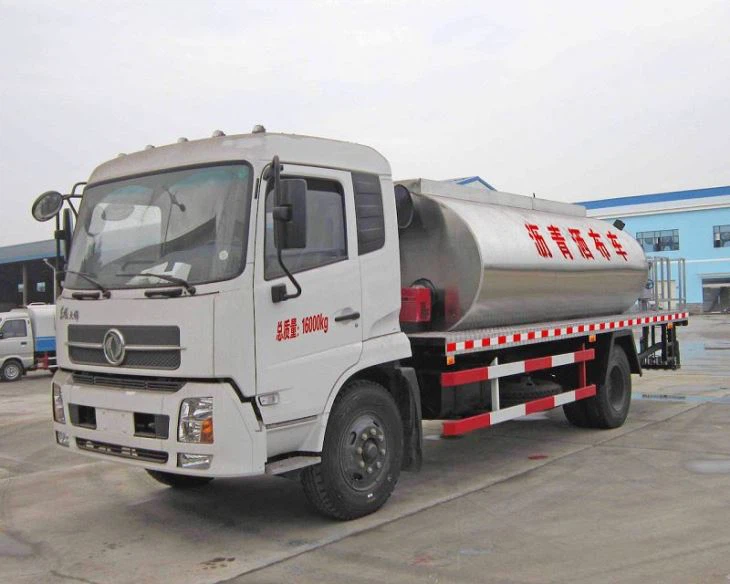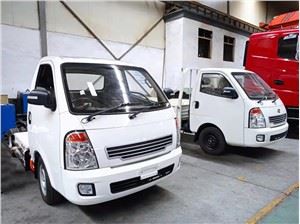Broom Street Sweeper: A Comprehensive Guide to Efficient Street Cleaning

Introduction
Keeping our streets clean is crucial for maintaining public health, enhancing aesthetics, and promoting safety. One effective tool for this purpose is the broom street sweeper. These machines have revolutionized how municipalities and organizations manage street cleaning. This article explores the features, types, and benefits of broom street sweepers, alongside practical tips and examples to assist you in choosing the right equipment for your needs.
What is a Broom Street Sweeper?
A broom street sweeper is a specialized vehicle designed for street cleaning, using rotating brushes and suction mechanisms to remove dirt, debris, and litter from roadways, sidewalks, and parking lots. Unlike traditional manual sweeping, these machines offer a faster, more efficient approach to maintaining cleanliness.
How Does a Broom Street Sweeper Work?
The operation of a broom street sweeper involves several components working together:
- Brushing System: Rotating cylindrical brushes collect debris from the road surface.
- Suction System: Vacuum tubes suck up the collected debris into a storage hopper.
- Water System: Water is sprayed to minimize dust during sweeping.
- Chassis: The base of the sweeper that houses all operational components and supports the driver’s area.
Types of Broom Street Sweepers
Broom street sweepers come in various models designed to suit different applications and environments. The two primary types are:
1. Mechanical Broom Sweepers
Mechanical broom sweepers utilize rotating brushes for the sweeping process and are particularly effective for heavy debris on hard surfaces. They tend to be more affordable and simple to operate.
2. Vacuum Sweepers
Vacuum sweepers combine sweeping and vacuuming functionalities, drawing up fine dust and smaller particles efficiently. They are ideal for urban areas where cleanliness is a priority.
Comparative Table of Mechanical vs. Vacuum Sweepers
| Feature | Mechanical Broom Sweepers | Vacuum Sweepers |
|---|---|---|
| Debris Handling | Heavy debris and litter | Fine dust and small particles |
| Cost | Lower | Higher |
| Maintenance | Relatively simple | More complex |
| Best Use Case | Streets and parking lots | Urban environments |
Benefits of Using a Broom Street Sweeper
Employing broom street sweepers offers numerous advantages, making them a popular choice for city maintenance teams and landscaping companies alike.
1. Enhanced Cleaning Efficiency
Broom street sweepers are capable of covering large areas quickly, significantly reducing the time spent on manual cleaning methods.
2. Improved Road Conditions

Removing debris regularly helps maintain road surfaces’ quality, which can extend the lifespan of paving materials and reduce wear on vehicles.
3. Environmental Benefits
By collecting debris and litter, broom street sweepers contribute to a cleaner environment, reducing pollution and promoting sustainability.
4. Increased Safety
A clean street reduces hazards such as slipped debris or accidents from hidden obstructions, enhancing public safety.
Choosing the Right Broom Street Sweeper
Selecting the appropriate broom street sweeper involves several factors to consider:
1. Type of Debris
Evaluate the common type of debris you need to manage. Mechanical sweepers are ideal for larger debris, while vacuum sweepers are better for fine particles.
2. Size and Design
Consider the size of your operational area. Smaller sweepers may be more suitable for narrow streets or crowded areas, while larger models can cover more open spaces.
3. Budget
Establishing a budget is vital. While some sweepers are more expensive, investing in quality equipment can lead to long-term savings through durability and efficiency.
4. Maintenance Requirements
Some machines require more maintenance than others. Research the maintenance requirements of each model you consider to avoid unforeseen costs.
Practical Tips for Operation and Maintenance
Proper operation and maintenance extend the life of broom street sweepers and enhance performance. Here are some practical tips:
1. Regular Cleaning of Brushes
Debris can accumulate on the broom brushes, reducing their efficiency. Regular cleaning helps maintain optimal performance.
2. Monitor Engine Performance
Keep an eye on engine parameters and have regular check-ups. A well-tuned engine operates effectively, reducing fuel consumption.
3. Schedule Routine Maintenance
Plan for routine maintenance checks, including oil changes, filter replacements, and checks on the sweeping and suction systems.
4. Train Operators Thoroughly
Ensure that operators are adequately trained in the equipment’s operation. A knowledgeable operator can navigate effectively and utilize the sweeper to its full potential.
Case Studies: Successful Implementations of Broom Street Sweepers
Understanding how organizations successfully implement broom street sweepers can provide insights into their effectiveness.
1. City of San Francisco
San Francisco incorporated vacuum street sweepers for more efficient dust and debris control in its urban areas. This initiative significantly reduced street litter and improved air quality.
2. Municipality of Toronto
Toronto employs mechanical broom sweepers for parking lots and specific roadways, allowing them to handle varying debris sizes effectively while maintaining cleanliness throughout the city.
3. Private Landscaping Company
A landscaping service in Austin used compact broom sweepers to manage large commercial properties. The combination of speed and efficiency allowed them to meet tight deadlines and serve more clients.
Future Trends in Street Sweeping Technologies
With advancements in technology, the broom street sweeper industry is poised for exciting developments:
1. Electric Sweepers
Electric broom street sweepers are emerging as a greener alternative to fuel-powered models, offering reduced emissions and noise levels.
2. Smart Technology Integration
Incorporating smart systems for real-time monitoring and maintenance tracking can enhance operational efficiency and reduce downtime.

3. Increased Automation
Automation in street sweeping could streamline operations, allowing for scheduled cleaning and remote monitoring of performance and needs.
Frequently Asked Questions (FAQ)
1. What is the average cost of a broom street sweeper?
The cost of broom street sweepers varies widely based on type and features, generally ranging from $20,000 to over $300,000 for advanced models.
2. How often should streets be swept?

Frequency depends on the area and traffic levels. Busy urban areas may require weekly sweeping, while quieter regions could be serviced monthly.
3. Can broom street sweepers operate in bad weather?
While many sweepers can handle light rain, extreme weather conditions can diminish efficiency. It’s advisable to avoid sweeping during heavy rain or snow.
4. Are broom street sweepers effective at picking up leaves?
Yes, broom street sweepers are effective at collecting leaves, especially if used before they become compacted and wet.
5. What should I consider when renting a broom street sweeper?
When renting, consider the machine’s size, type, rental terms, availability of operators, and additional services like maintenance support.
6. How can I maximize the lifecycle of a broom street sweeper?
Regular maintenance, proper operator training, and adhering to the manufacturer’s operational guidelines can significantly extend the lifetime of your sweeper.
